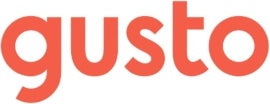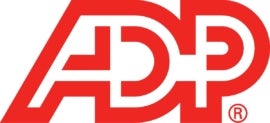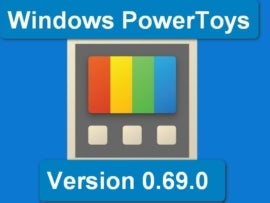-
Papaya Global: Best for international companies
-
Gusto: Best for time-saving automation
-
RUN Powered by ADP: Best HR solutions for midsize companies
-
Paycor: Best HCM solution
-
QuickBooks Payroll: Best for small manufacturing businesses
-
Rippling: Best for building customized plans
Manufacturing businesses need comprehensive, easy-to-use payroll software that minimizes the amount of time they have to spend crunching numbers. If your manufacturing company needs top-of-the-line software that keeps payroll running smoothly without requiring much effort on your part, keep reading to learn more about the best payroll software tools for businesses like yours.
Top manufacturing payroll software feature comparison
The right payroll software for a big-name manufacturer in the aerospace industry will likely have slightly different features from a small, specialized manufacturer of medical tools. But regardless of industry type or business size, most manufacturers need payroll software with some combination of the features below.
| Automatic tax withholding | Time-tracking tools | Employee self-service | International payroll processing | Direct deposit | Starting monthly price | |
|---|---|---|---|---|---|---|
| Papaya Global | Yes | Yes | Yes | Yes (160+ countries) | Yes | $12/payee |
| Gusto | Yes | Yes | Yes | Yes (contractors only) | Yes | $40 + $6/payee |
| RUN Powered by ADP | Yes | Yes | Yes | Yes (140+ countries) | Yes | Contact ADP for quote |
| Paycor | Yes | Yes | Yes | No | Yes | Contact Paycor for quote |
| QuickBooks Payroll | Yes | Yes | Yes | No | Yes | $45 + $5/payee |
| Rippling | Yes | Yes | Yes | Yes | Yes | $8/payee |
If you’re looking for payroll software with more generic features, check out our list of the best payroll software for businesses.
Jump to:
- Top manufacturing payroll software feature comparison
- Top payroll software for manufacturing businesses
- Key features of manufacturing payroll software
- Methodology
- How do I choose the best manufacturing payroll software for my business?
Papaya Global: Best for international companies

As a global workforce management solution, Papaya supports running payroll and paying employees in more than 160 countries. Its AI-powered platform stays up to date on employment in every country and automatically flags you on potential compliance issues. The payroll software also integrates smoothly with the most important (and most popular) global business technologies for manufacturers, including QuickBooks Online, Expensify, BambooHR, and more.
Pricing
Unlike most other payroll services, Papaya Global only charges a per-employee monthly fee, not a base fee along with a per-employee fee. However, you pay for each Papaya service separately. If you want payroll and health benefits, for instance, you’ll pay for both Full-Service Payroll and Global Expertise Services:
- Full-Service Payroll starts at $12 a month per payee and works best for manufacturing businesses with three to 20 locations.
- Payments-as-a-Service starts at $3 a month per employee and lets you pay workers across the world.
- Contractor Management starts at $25 a month per contractor.
- A Data and Insights Platform License starts at $150 a month per location (not per employee) and lets you generate payroll reports for your business.
- Global Expertise Services start at $250 a month per employee and enables you to find global health plans and other employee benefits.
Features
- Automatic payroll tax calculation and filing in 160+ countries.
- Payments in local currencies delivered no more than 72 hours after you run payroll.
- Self-service mobile app for employees to access payroll data, request PTO and more.
- Professional white-glove software setup for new clients.
- the option to continue working with your current payroll provider on the Papaya OS.
- Access to templates, local compliance experts and legislation notifications to keep companies abreast of employment law changes across the globe.
- GDPR-compliant data security measures.
Pros
- Papaya’s global team of on-the-ground legal experts — including health and safety experts — keeps you informed and compliant with local laws.
- Country-specific benefits are customized to keep you competitive.
- Papaya’s platform simplifies paperwork filing for immigration and visas to make hiring expats as simple as possible.
Cons
- Papaya Global’s reporting package is higher than the base price for typical payroll providers that offer built-in reporting with each plan.
- Invoicing is a separate feature that isn’t fully automated with the Papaya Global system.
For more information, read about Papaya on our list of the best international payroll services.
Gusto: Best for time-saving automation

Gusto’s fully automated software combines basic HR elements (benefits, healthcare and workers’ comp administration) with full-service payroll. Businesses can set payroll to run automatically so employees never miss a pay day. Payroll syncs instantly with time and attendance data to give you accurate, up-to-date payroll data. Gusto includes several features for free that many payroll providers don’t (for instance, mailing out end-of-year tax forms)_, which makes it a good pick for small and midsize businesses operating on a strict budget.
Pricing
Gusto’s three plans have increasing levels of HR features and support to make Gusto scalable for growing businesses:
- Simple starts at $40 per month plus $6 per payee per month.
- Plus starts at $80 per month plus $12 per payee per month.
- Premium has customized pricing only.
Gusto doesn’t advertise a free trial, though it does offer a free demo, free quote and occasional discounts for first-time users.
Features
- Unlimited automatic payroll runs with automatic direct deposit in all 50 U.S. states.
- Automatic wage garnishment and remittance (available everywhere but South Carolina).
- Onboarding checklists, personalized offer letter templates and secure e-document signing and storage.
- Unique benefits options like commuter travel allowances and college savings funds.
- ACA, HIPAA and ERISA compliance support from Gusto’s legal experts.
- Compliance alerts (available with premium plan only).
Pros
- No extra charge to integrate workers’ compensation insurance and healthcare benefits if found through Gusto’s brokerage.
- Base fee waived for businesses that pay contractors only.
- Custom admin permissions keep sensitive data secure.
- Payroll can be set to autopilot so you don’t have to remember to actively run payroll.
Cons
- Health benefits are only available in 37 U.S. states plus Washington, D.C.
- Gusto lets you pay international contractors but not international employees.
- No mobile payroll app for employers (employees can clock in and out with Gusto Wallet).
- Built-in time and project tracking are not available with Gusto’s cheapest plan.
For more information, read our in-depth comparison of Gusto and ADP.
RUN Powered by ADP: Best HR solutions for midsize companies

ADP is a payroll and HR management company that operates globally. Along with its more sweeping professional employer organization (PEO) solutions for businesses that want to turn workforce management over to a third party, it offers combined payroll and HR software, including its popular RUN payroll product. Manufacturing businesses can use RUN to pay employees in 140+ countries. Each RUN plan also includes HR features like basic HR tips, newsletters and checkups.
Pricing
ADP doesn’t list pricing for any of its four RUN payroll plans online. Interested businesses will have to contact ADP’s sales team directly for a customized quote.
- Essential Payroll includes basic payroll features like automatic direct deposit, tax filing and state new-hire reporting.
- Enhanced Payroll adds secure check signing, automatic wage garnishment and background checks on new employees.
- Complete Payroll adds employee onboarding, HR forms and HR compliance alerts.
- HR Pro adds thorough legal compliance services and personalized HR support.
ADP typically offers three months free to new customers with every plan.
Features
- Automatic payroll runs and direct deposit in 140+ countries.
- General ledger integration.
- Automatic new-hire state reporting.
- Access to legally required state and federal employment forms.
- Thorough payroll and workforce reports with every plan.
- Mobile payroll app for employers to run payroll away from the office.
- Mobile app for employees to clock in and out, check pay stubs and request time off.
Pros
- Payroll and workforce reports included with no extra fee.
- Compliance database makes it easy for businesses to stay informed on federal and state employment laws.
- Thousands of legally compliant HR forms, templates and best-practice documents available to download and customize.
Cons
- Legal compliance alerts only available with the priciest plan.
- Basic onboarding tasks not included with cheaper plans.
- Additional fee for W-2 and 1099 tax form generation.
For more information, read our full ADP review.
Paycor: Best HCM solution

Human capital management solutions like Paycor tackle everything related to managing your employees, starting with payroll, HR and time tracking. Paycor’s software also guides you through every phase of finding, hiring and retaining employees, which includes processes like recruiting, scheduling, benefits, career mapping, employee development and more.
Paycor offers industry-specific onboarding for clients in the manufacturing industry. A customer service rep well-versed in employment issues specific to manufacturers — for instance, managing seasonal workers, staying in compliance and handling workers’ comp — will help set up and customize the software to your company’s needs.
Pricing
Paycor doesn’t list the pricing for its four plans online, though it does advertise 50% off for your first year and waives all setup fees.
- Basic includes automatic payroll runs and focuses on tax compliance.
- Essential adds more compliance and HR support to Basic’s payroll features.
- Core adds career management and other employee-support features.
- Complete, Paycor’s most comprehensive plan, adds compensation planning and talent development.
Features
- Automatic federal and state payroll tax deduction and remittance.
- Multiple employee payment options, including direct deposit and check.
- Employee self-service portal.
- HR templates, legal compliance alerts and how-to payroll and HR guides.
- Detailed analytic reports, including compensation analysis, diversity and inclusion insights and employee turnover metrics.
Pros
- Payroll runs can be scheduled in advance and made automatic.
- Paycor monitors employment law at the state, federal, county and city levels and sends alerts to keep you compliant.
- Proactive, predictive analytic reports help you understand how your employees feel about your business to help improve retention.
Cons
- Customizable plans are likely too expensive for small and midsize businesses.
- Limited third-party integrations might necessitate redundant data entry as you hop between software programs.
QuickBooks Payroll: Best for small manufacturing businesses

If you’re already using Intuit QuickBooks as your company’s accounting solution, adding QuickBooks Payroll is basically painless. Your payroll and accounting data will sync automatically, ensuring your books always reflect the most accurate employee pay. QuickBooks has a notably low learning curve, so if you’re used to QuickBooks but new to payroll, learning to use QuickBooks Payroll will take you the least amount of time compared to any other payroll solution.
Pricing
QuickBooks Payroll has three payroll plans.
- Core starts at $45 a month plus $5 per employee.
- Premium starts at $75 a month plus $8 per employee.
- Elite starts at $125 a month plus $10 per employee.
As with its accounting software, QuickBooks Payroll offers a 30-day free trial or 50% off for three months.
Features
- Automatic payroll tax remittance plus up to $25,000 of tax penalty protection.
- Automatic payroll runs and direct deposit.
- Workers’ compensation integration with automated premium payment.
- Next-day or same-day direct deposit (dependent on plan).
- Shift or job schedule creation via mobile app.
- Real-time notifications for employee scheduling changes.
Pros
- Low per-employee fee keeps costs down for small manufacturing businesses on a budget.
- Next-day and same-day direct deposit ensure employees get paid quickly.
- Automatic payroll runs take the task of manually running payroll off your plate.
Cons
- No workers’ compensation integration with Core plan.
- Workers’ compensation insurance unavailable in OH, ND, WA and WY.
- Apart from the basic Core plan, above-average pricing compared to similar payroll providers.
For more information, read our full QuickBooks Payroll review.
Rippling: Best for building customized plans

If you want to build a completely unique payroll solution from the ground up, Rippling’s business model could work best for you. Along with payroll, Rippling offers benefits administration, HR, learning management, time and attendance, applicant tracking and employee survey modules. You can choose however many modules you want to create a customized software package and only pay for the tools you need.
Pricing
Although Rippling advertises its starting price as $8 per person per month, this price doesn’t include the base fee you pay to access Rippling’s platform, Rippling Unity. Whether you end up subscribing to a payroll module only or all of Rippling’s HR, IT and finance products, you must pay the base fee for Rippling Unity. Since that price isn’t listed online, you’ll need to contact Rippling directly for a more accurate quote.
Features
- Global payroll, including automatic payroll tax remittance.
- Employee pay options in multiple currencies.
- Real-time HR compliance alerts.
- Global expense management, including employee expense tracking.
- Employee reimbursement in multiple currencies.
- National PEO services and global Employer of Record services.
- Pre-made compliance courses for national and international employees.
- Time and attendance software with mobile and kiosk clock-in options.
Pros
- Essential payroll, HR, IT, finance and employee development tasks are all managed on one unified platform.
- Holiday calendars, benefits, equity and time-off policies can all be customized for workers in different countries.
- Automated, built-in compliance enforces minimum wage, overtime, employee leave and compliance training requirements in every country.
- Multiple employee-facing features like surveys, onboarding and feedback opportunities gives employees more insight into employee job satisfaction and retention rates.
Cons
- Confusing, unclear pricing structure with limited transparent pricing online.
- High software learning curve and time-consuming setup.
For more information, read our full Rippling payroll review.
Key features of payroll software for manufacturing
Manufacturing companies deal with many of the same payroll and HR issues as other industries, from ensuring employees clock in and out on time to filing the right quarterly taxes. But a few unique issues impact manufacturers more than most industries, including low employment rates, unpredictable supply chains and material shortages.
As a result, manufacturers need payroll software that helps prioritize employee retention while staying on top of ever-changing employment laws at the federal, state, local and international levels. Additionally, payroll software should automate time-consuming payroll and HR tasks so business owners have the time to focus on their workforce and business operations.
Manufacturing payroll software with the following features should help you meet those priorities. Keep these features in mind as you wade through the wide market of payroll software to find one that fits your budget and business.
Automatic tax withholding and remittance
Full-service payroll tax software automatically calculates your employees’ gross wages for the pay period. It then calculates the right amount to withhold in taxes and other deductions and remits them to the correct government agency.
Self-service payroll software calculates paycheck amounts and taxes but leaves the actual filing up to you. It’s generally cheaper than full-service software, but it also takes up more time, so look for full-service software with automated payroll runs to minimize the amount of time you have to spend with payroll.
Time and attendance tracking
Manufacturing workers are often paid hourly, which means you need time and attendance software that integrates directly with payroll software to calculate correct wages. As a result, the best payroll software for manufacturers should include built-in time trackers. (Note that time and attendance integration often costs an additional monthly fee.)
Employee self-service portals
Typically, your employees clock themselves in and out, so they need a self-service portal that allows them to do so. Preferably, your payroll software will include a user-friendly app that allows them to do just that. Some payroll providers, like ADP, will set up physical terminals on location that employees can use instead of or with self-service apps.
International payroll processing
If your manufacturing business operates in more areas than the United States, international payroll processing is a must. The best manufacturing payroll software lets you pay international employees in their own currency. It also stays on top of employment and data security laws in every country, notifying you when laws change so you can stay compliant across the globe.
Direct deposit and other payment options
Choosing software that pays your employees automatically through direct deposit is another way to save time on payroll, but it’s important to remember that not all employees like being paid through direct deposit. It’s rare, but some might not have a bank account you can deposit funds into at all. If possible, find a payroll service provider that offers multiple payment options, such as checks and preloaded debit cards.
Third-party software integration
Payroll is just one of many software tools you use to run your business. Choosing payroll software that integrates with your HR and accounting tools will streamline processes across your company and reduce the amount of time your team has to spend entering the same information over and over.
Benefits management
Depending on what types of employees you have, you might be legally required to offer certain benefits. Whether you find those benefits through your payroll software’s brokerage or on your own, choosing software with benefits administration ensures the right amount is deducted from your employees’ paychecks and deposited into their 401(k) savings account or HSA.
Workers’ compensation insurance
Workers’ compensation insurance is a legal requirement for businesses in any industry, but finding the right insurance plan is particularly important for labor-intensive, high-risk jobs like manufacturing. Since you pay workers’ compensation insurance premiums based on payroll data, find a payroll company that either offers workers’ comp through a brokerage or integrates with your workers’ comp insurance for effective administration.
Methodology
We curated a list of the best reviewed, most popular payroll software for manufacturers based on aggregate reviews from sites like TrustRadius and Gartner Peer Insights, our own in-depth research and software demos on vendor sites. We then narrowed down our top picks, assessed their use cases and evaluated their strengths and weaknesses based on how they performed in the following categories:
- Number, quality and usability of payroll features.
- Manufacturing-specific standout features (e.g., legal compliance, workers’ comp integration and employee retention).
- Integrations with other software, especially time and attendance or scheduling software.
- Pricing data, specifically whether the amount of features warranted the price.
- Accessibility and availability, including global currency payments and multiple employee pay options.
How do I choose the best manufacturing payroll software for my business?
Whether you operate out of one country or dozens, manufacture cars or industrial tools, the right payroll software helps you pay employees on time while staying legally compliant with federal and local labor laws. As you sort through options looking for the right payroll software, ask yourself what you can afford, which features you can’t live without, what processes you need streamlined and which integrations will give you and your employees the best possible payroll experience.
Payroll software can have a huge impact on your time and budget, so it’s also worth prioritizing software that offers free trials and in-depth demos to ensure you commit to the right payroll program. While you shouldn’t dismiss payroll software that doesn’t have transparent pricing online or requires a phone call to get a quote, it’s fair to be wary of pushy sales reps who overpromise without providing specific details to back up their claims.
Still wondering which payroll software is right for you? Our overview of the best payroll software for businesses offers more software options to add to your list, including popular tools like Paychex and Zenefits.







